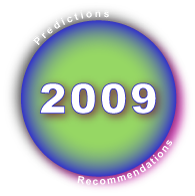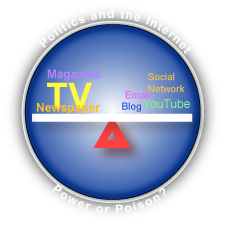The use of social networking sites will increase; people will shift to a strong family focus because they will be poorer. Older workers will get computer literate due to going back to work and working longer. […]
|
|||||
|
February 5th, 2010 | Tags: Adoption, Analysis, Conference, Customer, Economy, Government, Management, Prediction, SNC, Social network, Strategy | Category: Economy | Leave a comment Review and Analysis of the twenty-first century’s first decade, how Web 1.0 and Web 2.0 are disrupting executives, enterprises, society and government.. crowdsourcing, collaboration, innovation, privacy, globalization, terrorism, organizational unbundling, and how to thrive in the Knowledge Economy’s accelerating volatility, which will spell the end of many Industrial Economy enterprises. […] January 2nd, 2010 | Tags: Adoption, CEO, China, CIO CTO, CMO, Collaboration, Crowdsourcing, Culture, Economics, Empowerment, Enterprise 2.0, Experience, Globalization, Government, Human capital, India, Innovation, Internet, Knowledge Economy, Management, Marketing, Outsourcing ITO BPO KPO, Politics, Prediction, Privacy, Review, Social network, Strategy, Technology, Transform, Web 1.0, Year in Review | Category: Social Business | One comment Digital social networks give front row seats in many aspects of human dramas, but few companies or individuals have the understanding of human behavior to appreciate fully what they are seeing. Many executives of commercial and government enterprises perceive “social” behavior as frivolous and discourage employees’ activity in social networks. This exceptional book shows that the separation of “work” and “social” is dangerously out of place today because collaboration produces the lion’s share of business value. To succeed, leaders need to appreciate the importance of social activity in collaboration and productivity, and how digital social networks can increase productivity. […] December 26th, 2009 | Tags: Adoption, anthropology, brain, chimpanzee, Collaboration, Culture, Development, Empowerment, evolutionary psychology, Experience, Facebook, Government, Higher education, homo sapiens, Human capital, Knowledge Economy, LinkedIn, Politics, Prediction, primate, Relationship, Research, Review, Social network, sociality, Strategy, Transform, Trust | Category: Society & Culture | 13 comments Drive customer engagement and brand value by focusing on the experience of using your product or service. This is the manna of word of mouth and social computing conversations. […] November 2nd, 2009 | Tags: Case study, Client, Community, Customer, Empowerment, Facebook, Government, High tech, Marketing, Mobile, Retail, Services, Strategy, Vision | Category: Social Business | 5 comments Sneak preview: the only social networking panel at 2009’s PanIIT, featuring insights from executives from Alcatel-Lucent, Allstate and Experian as well as two enterprise social networking consultants. […] October 4th, 2009 | Tags: Adoption, CIO CTO, Collaboration, Community, Conference, Customer, Employee, Enterprise, Executive, Facebook, Government, Higher education, Human capital, Innovation, Insurance, LinkedIn, Marketing, Professional services, Sales, Social network, Software, Twitter | Category: Social Business | Leave a comment Why 2009’s economic disruption will prove more pervasive and protracted than many experts think—and how you can guide you company. Guidance on using social networks to become more competitive and enhance your survival. […] July 26th, 2009 | Tags: CEO, Empowerment, Experience, Government, Human capital, Innovation, Knowledge Economy, Manufacturing & Transport, Politics, Transform | Category: Economy | 2 comments Recap of enterprise social networking workshop for how to create a repeatable process for designing and managing successful enterprise social networking initiatives […] January 28th, 2009 | Tags: Application, Conference, Enterprise, Facebook, Government, LinkedIn, Methodology, Mobile, MySpace, Seminar, Social network, Strategy, Twitter, Vendor | Category: Social Business | 2 comments Volatility, Uncertainly and Opportunity—Move Crisply while Competitors Are in Disarray
This is a high-stakes year in which we can expect surprises. Web 2.0 and social networks can help because they increase flexibility and adaptiveness. Alas, those who succeed will have to challenge conventional thinking considerably, which is not a trivial exercise in normal times. The volatility that many businesses face will make it more difficult because many of their clients and/or employees will be distracted. It will also make it easier because some of them will perceive that extensive change is afoot, and Web 2.0 will blend in with the cacaphony. Disruption produces unusual changes in markets, and the people that perceive the new patterns and react appropriately emerge as new leaders. […] January 2nd, 2009 | Tags: Adoption, CEO, CIO CTO, CMO, Economics, Empowerment, Enterprise 2.0, Globalization, Government, Healthcare, Human capital, India, Innovation, Internet, Knowledge Economy, Management, Marketing, Politics, Prediction, Review, Strategy, Technology, Transform, Web 1.0 | Category: Social Business | 4 comments Editor’s Choice of the Global Human Capital Journal—Accelerating Disruption and Opportunity
Look in any direction. From a macroeconomic perspective, the global economy is showing itself to be pervasively interdependent. The U.S. successfully exported its real estate finance crisis without even working up a sweat. I don’t believe that anyone really knows where all the bodies are buried yet, and central bank chairmen, national presidents and global organization leaders are still holding their breaths, even though they smile bravely on television. Barack Obama’s successful U.S. presidential campaign showed that a new era of politics is upon us; as we’ll discuss below, […] December 31st, 2008 | Tags: Adoption, CEO, CIO CTO, CMO, Economics, Empowerment, Enterprise 2.0, Globalization, Government, Healthcare, Higher education, Human capital, India, Innovation, Internet, Knowledge Economy, Management, Marketing, Politics, Prediction, Review, Strategy, Technology, Transform, Web 1.0, Year in Review | Category: Social Business | One comment Conventional Wisdom Scuttled—Disruption Preview—Business in the Batter’s Box
The Obama campaign is very instructive to business leaders because business customers are changing expectations of their leaders, as we’ll discuss in more detail below. As the Global Human Capital Journal is not primarily focused on politics, I am less interested in the fact that Obama was elected than how he was elected. Moreover, […] December 29th, 2008 | Tags: Adoption, Case study, CEO, CIO CTO, CMO, Collaboration, Culture, Debunk, Economics, Empowerment, Experience, Government, Human capital, Internet, Knowledge Economy, Marketing, Mobile, Politics, Strategy, Technology, Transform | Category: Government, Social Business, Social Platforms, Society & Culture | 10 comments |
ThemesTopicsAdoption
Advice
Analysis
Career
Case study
CEO
CIO CTO
CMO
Collaboration
Community
Conference
Culture
Customer
Development
Economics
Employee
Empowerment
Enterprise
Enterprise 2.0
Executive
Experience
Facebook
Globalization
Government
Higher education
Howto
Human capital
Innovation
Internet
Knowledge Economy
LinkedIn
Management
Marketing
Mobile
News
Politics
Reflection
Relationship
Social network
Strategy
Technique
Technology
Transform
Trust
Twitter
Past Issues |
||||
|
Copyright © 2026 Christopher S. Rollyson and Associates - All Rights Reserved Powered by WordPress & Atahualpa |
|||||

 Now that the Year in Review 2008 has summarized key trends, we are in excellent position for 2009 prognostications, so welcome to Part II. As all experienced executives know, risk and reward are inseparable twins, and periods of disruption elevate both, so you will have much more opportunity to produce uncommon value than normal.
Now that the Year in Review 2008 has summarized key trends, we are in excellent position for 2009 prognostications, so welcome to Part II. As all experienced executives know, risk and reward are inseparable twins, and periods of disruption elevate both, so you will have much more opportunity to produce uncommon value than normal. What a year! When I wrote in the 2007 Year in Review that 2008 “would produce an unimaginable degree of change,” I had no idea how right that would prove to be. We saw major disruption in the global economy, and the U.S. presidential campaign closed the year with a major political upset, largely at the hand of social media. That said, I still believe that 2008 will prove to be a transitional year and that more profound change is on the way.
What a year! When I wrote in the 2007 Year in Review that 2008 “would produce an unimaginable degree of change,” I had no idea how right that would prove to be. We saw major disruption in the global economy, and the U.S. presidential campaign closed the year with a major political upset, largely at the hand of social media. That said, I still believe that 2008 will prove to be a transitional year and that more profound change is on the way. Barack Obama’s presidential campaign was more than a major social media milestone because it ushered in a new relationship model among leaders and their supporters. Due to social media, an unprecedented number of individuals had a new kind of active, direct role in Obama’s campaign; moreover, I predict that the Obama campaign and imminent administration will change citizens’ and consumers’ expectations of “leader” and “follower” roles in government and business. Amazon.com changed consumers’ expectations about retail in general—information on demand, reviews, unbelievable variety at low prices—and a significant portion of Obama supporters will want to continue their support to “make the change happen.” These supporters will bring their changed expectations of action and collaboration to their vendors. That means your company.
Barack Obama’s presidential campaign was more than a major social media milestone because it ushered in a new relationship model among leaders and their supporters. Due to social media, an unprecedented number of individuals had a new kind of active, direct role in Obama’s campaign; moreover, I predict that the Obama campaign and imminent administration will change citizens’ and consumers’ expectations of “leader” and “follower” roles in government and business. Amazon.com changed consumers’ expectations about retail in general—information on demand, reviews, unbelievable variety at low prices—and a significant portion of Obama supporters will want to continue their support to “make the change happen.” These supporters will bring their changed expectations of action and collaboration to their vendors. That means your company.